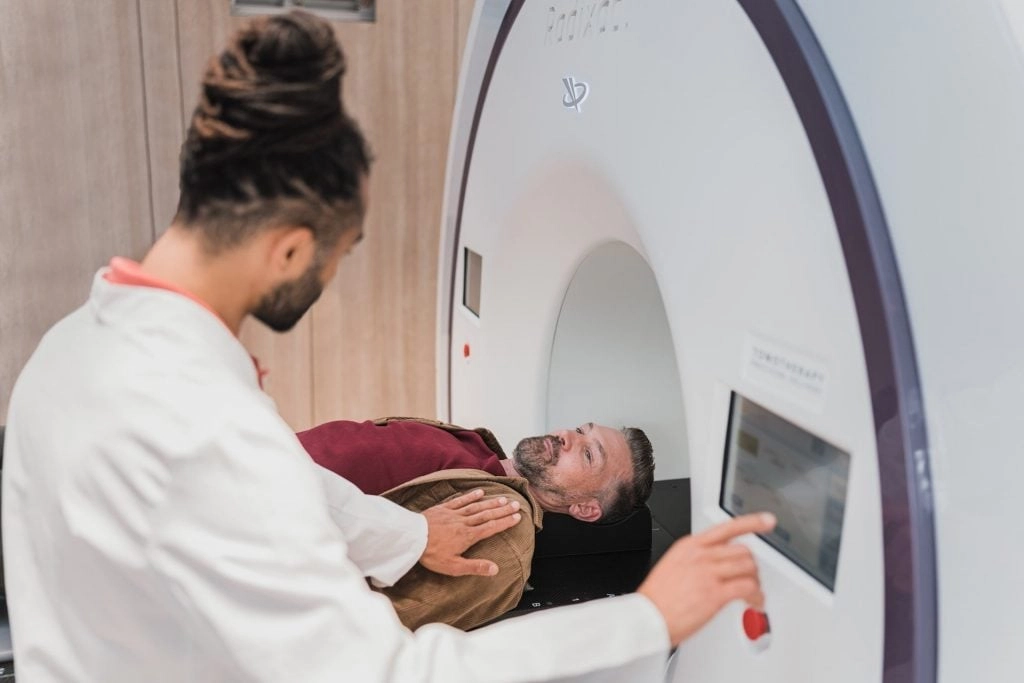Many students face unique challenges when studying abroad, particularly those managing obsessive-compulsive disorder (OCD). Understanding personal triggers and implementing effective coping strategies is essential for academic success in unfamiliar environments. A structured routine and mindfulness practices can greatly enhance emotional regulation. Additionally, forming a supportive network is important for resilience. Exploring how to cope with OCD in daily life can reveal essential techniques for managing challenges while staying focused on personal and academic goals.
Key Takeaways
- Identify and document personal triggers in a journal to better manage OCD while adjusting to a new academic environment.
- Establish a consistent daily routine that balances study, relaxation, and self-care to reduce anxiety and enhance focus.
- Practice mindfulness techniques, such as deep breathing and meditation, to maintain emotional regulation during stressful academic situations.
- Build a supportive network by connecting with peers, friends, and professional resources to foster a sense of belonging and encouragement.
- Celebrate small achievements in managing OCD to boost confidence and resilience in navigating academic challenges abroad.
Mapping Your Triggers: Understanding the Mind’s Patterns
Navigating daily life with OCD begins with recognizing the subtle cues that spark intrusive thoughts and anxious behaviors. By carefully observing and documenting these triggers, students create a personal map of their mind’s landscape—a guide that illuminates moments of vulnerability. Journaling experiences, noting emotional reactions, and reflecting on specific situations can uncover patterns that might otherwise remain hidden. This awareness is not about self-judgment but about empowerment: understanding your triggers provides clarity, reduces the uncertainty that feeds anxiety, and becomes the first step toward crafting effective coping strategies that fit your unique academic journey abroad.
Crafting Daily Rhythms: The Power of Routine
Consistency can be a quiet anchor amidst the turbulence of studying in a new environment. Establishing structured routines—balancing study, rest, self-care, and leisure—creates a predictable rhythm that calms an anxious mind. Routines provide a sense of control when external circumstances feel overwhelming, and they foster focus, resilience, and emotional stability. Small, deliberate habits—like dedicated study blocks, mindful meals, or nightly reflection—transform daily life into a supportive framework. Over time, these rhythms not only help manage OCD but also nurture confidence, allowing students to approach academic challenges with clarity, steadiness, and a sense of self-assured calm.

Anchoring the Mind: Mindfulness and Supportive Connections
Even amid uncertainty, grounding techniques can restore equilibrium. Mindfulness practices—such as deep breathing, meditation, or sensory awareness—invite attention back to the present moment, diminishing the power of intrusive thoughts. Beyond self-practice, forming a network of understanding peers, mentors, and mental health professionals provides essential encouragement. These connections offer validation, guidance, and a sense of belonging, reducing isolation and reinforcing resilience. By combining mindfulness with supportive relationships, students cultivate a sanctuary within themselves and around them—a space where OCD is acknowledged, managed, and no longer allowed to overshadow academic and personal growth in a foreign environment.
Frequently Asked Questions
What Are Common Triggers for OCD in Academic Settings?
Common triggers for OCD in academic settings include high-stakes exams, perfectionism, peer comparisons, and overwhelming workloads. These factors can intensify anxiety, making it essential for individuals to develop effective coping strategies for daily life.
How Can Meditation Help With OCD Symptoms?
Meditation can greatly alleviate OCD symptoms by fostering mindfulness, reducing anxiety, and enhancing emotional regulation. Research indicates that consistent practice helps individuals create distance from intrusive thoughts, promoting a sense of calm and control in daily life.
Are There Specific Study Techniques for Students With OCD?
Students with OCD can benefit from structured study techniques, such as time management, breaking tasks into smaller parts, and utilizing visual aids. These methods help reduce anxiety and enhance focus, fostering a supportive learning environment.
What Role Does Therapy Play in Managing OCD?
Therapy plays an essential role in managing OCD by providing individuals with effective coping strategies, fostering emotional support, and promoting self-awareness. Evidence-based approaches, such as cognitive-behavioral therapy, empower individuals to navigate daily challenges and enhance overall well-being.
Can Diet Affect OCD Symptoms and Coping Strategies?
Diet can influence OCD symptoms and coping strategies. Research indicates that balanced nutrition, rich in omega-3 fatty acids and vitamins, may enhance mental health, potentially reducing symptoms and supporting individuals in their daily coping efforts.
Conclusion
To sum up, mastering OCD coping techniques is essential for academic success abroad. By identifying triggers, establishing structured routines, and incorporating mindfulness practices, students can effectively manage anxiety and enhance their emotional well-being. Additionally, fostering supportive relationships and seeking professional guidance contributes to resilience in traversing unfamiliar environments. By employing these strategies, individuals can not only thrive academically but also cultivate a fulfilling and enriching experience in their new cultural settings.
You May Also Like To Read:





